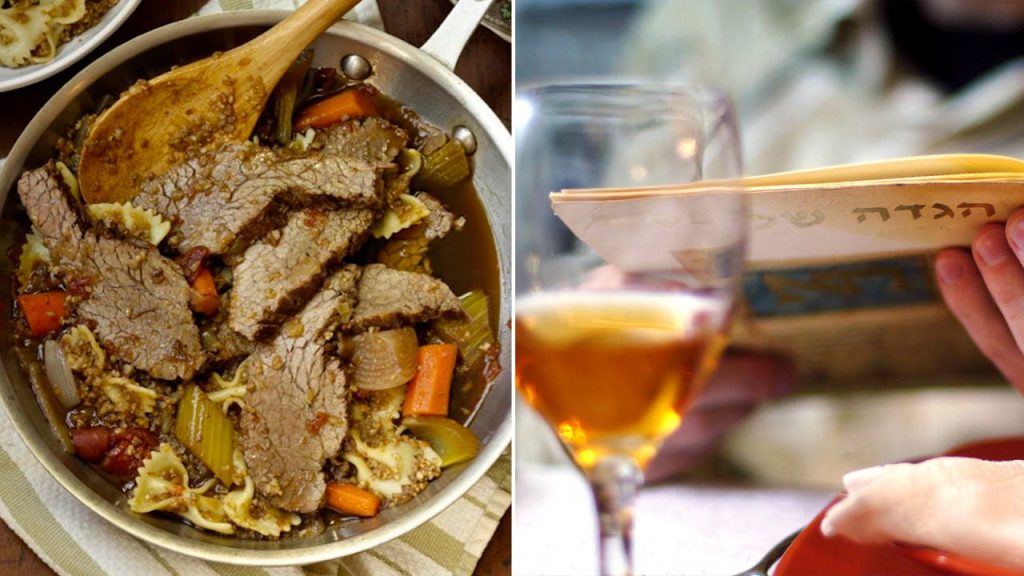To commemorate Passover, June Hersh, a New York-based author, is sharing a brisket recipe from her book “Food, Hope & Resilience: Authentic Recipes and Remarkable Stories from Holocaust Survivors.” The recipe belonged to Holocaust survivor Judith Ginsburg, who had a remarkable life story. She was born in Poland and managed to escape to the woods to fight alongside partisans against the Nazis. The recipe reflects her Ashkenazi style of cooking and is a savory brisket that can be enjoyed at any time, but holds special significance during Passover, a holiday that celebrates freedom and renewal.
In the brisket recipe, Hersh suggests using any cut of brisket, but recommends the second cut which includes a top fatty layer that adds extra juiciness to the meat. The recipe includes simple ingredients like paprika, garlic powder, carrots, onions, and garlic, as well as a flavorful sauce made from tomato soup, ketchup, brown sugar, and vinegar. The brisket is slow cooked in the oven until fork tender and then sliced against the grain before being served in the flavorful sauce. The dish can be served immediately or left to marinate overnight for even more depth of flavor.
The Jewish holiday of Passover marks the Israelites’ freedom from slavery in Egypt, and traditionally involves a festive meal known as the Seder. This year, a Jewish group introduced a new element in their Haggadah to commemorate the holiday, highlighting the “Ten Plagues of Antisemitism.” The holiday is a time for reflection, remembrance, and celebration, as well as a time to come together with family and friends. The brisket recipe shared by Hersh is a way to honor the holiday and pay tribute to the resilience and strength of Holocaust survivors.
The recipe for Holocaust survivor Judith Ginsburg’s brisket serves eight and requires minimal preparation time before slow cooking in the oven for four hours. The dish is simple yet flavorful, reflecting the Ashkenazi style of cooking that Ginsburg embraced. By sharing this recipe, Hersh hopes to preserve the memory of Ginsburg and other Holocaust survivors, and to pass on their stories and traditions to future generations. The dish is a delicious way to celebrate Passover and to honor the resilience and spirit of those who survived the darkest chapter in human history.
Through sharing recipes and stories from Holocaust survivors like Judith Ginsburg, June Hersh aims to keep their memories alive and honor their legacy. The brisket recipe is a testament to the strength and resilience of those who endured unimaginable suffering and managed to reclaim their lives and their heritage. By cooking and sharing this dish, individuals can pay tribute to the survivors and their experiences, and ensure that their stories continue to be told and remembered for generations to come.
In addition to the brisket recipe, Hersh also shares stories from other Holocaust survivors in her book, providing a glimpse into the lives of those who managed to overcome unimaginable odds. The book serves as a testament to the human spirit’s ability to endure, adapt, and ultimately triumph over adversity. By sharing these stories and recipes, Hersh hopes to inspire others to remember the past, honor the survivors, and celebrate the resilience and strength of the Jewish people. Passover is a time to reflect on freedom, renewal, and the triumph of the human spirit, and the brisket recipe is a delicious way to pay tribute to the enduring legacy of those who survived the horrors of the Holocaust.


